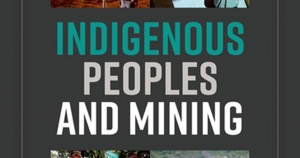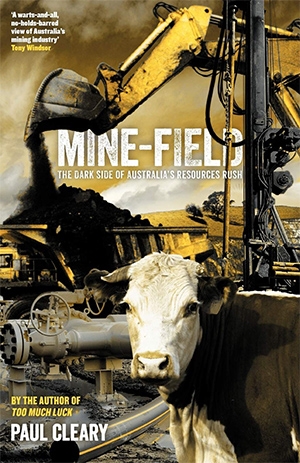Mining
Deanna Kemp reviews 'Indigenous Peoples and Mining: A global perspective' by Ciaran O’Faircheallaigh
Recently, mining giant Rio Tinto disturbed another ancient rock shelter in Australia’s Pilbara during a routine blast designed to ‘mimic’ the natural environment. This time, the company announced its transgression before it hit the headlines, presumably to avoid the kind of public outrage it faced after the Juukan Gorge incident in May 2020. What compelled Rio Tinto to admit wrongdoing, and to what effect? Does this pre-emptive mea culpa signal a new corporate sensitivity to Aboriginal culture and heritage, or is it a strategy to placate the Australian public so mining can continue? Analysing the factors that both enable and constrain mining on Indigenous peoples’ lands is the focus of Ciaran O’Faircheallaigh’s book Indigenous Peoples and Mining: A global perspective.
... (read more)Gillian Terzis reviews 'Mine-field: The Dark Side of Australia’s Resources Rush' by Paul Cleary
When BHP Billiton announced last month that it would indefinitely shelve its proposed Olympic Dam expansion in South Australia, some said it signalled the symbolic end of the mining investment boom. South Australian Premier Jay Weatherill’s reaction was particularly revealing. With his government now staring into a $1 billion black hole, Weatherill declared that he and the community had lost trust in BHP, and that the decision was a ‘major disappointment’. Many of Weatherill’s critics have suggested that his response betrayed his party’s zeal for the mining project, to the detriment of other sectors, with the sole aim of bolstering the state’s beleaguered economy. Putting ‘trust’ and ‘mining companies’ in the same sentence may be nothing more than political aikido. After all, given the tumescent economic growth that has come from the commodities rush, Weatherill’s reaction is predictable. Yet one can’t help but feel that his trust is misplaced.
... (read more)

